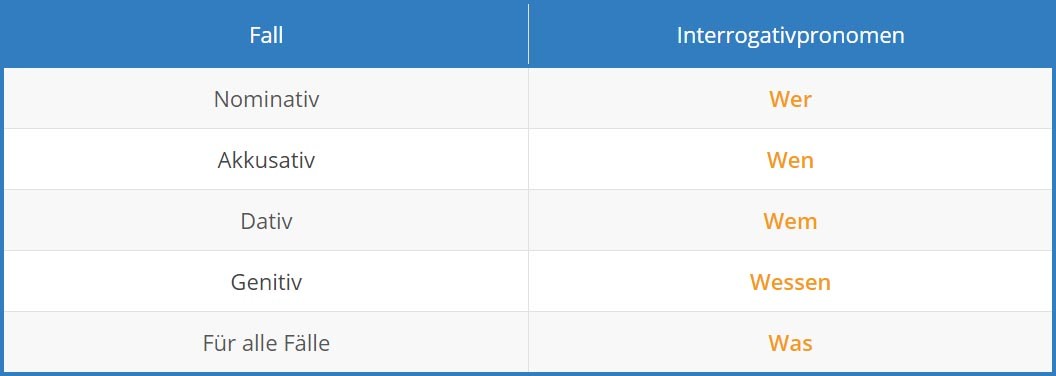Imperative Sentences German | This form is used, for example, to explain to someone how to get to a particular place. We can use it to address people in the 2. These sentences are sometimes referred to as directives because they provide direction to whoever is being addressed. They are not very hard to learn, but can be difficult to understand without getting all of the basics down. Iss (du), essen wir, esst ihr, essen sie.
In written german, imperative sentences usually end with an exclamation mark. Ich möchte deutsch lernen i want to learn german. The conjugation of essen in the imperative is: It can be tricky for native english speakers to get comfortable using the german imperative, unless. The imperative is used to express a wish, request or order.

An imperative is a form of the verb used when giving orders or instructing people to do things. Imperativ works by using the infinitive form of the verb, for example: To sound more polite just say bitte (please). The imperative form is very common in german language. It can be tricky for native english speakers to get comfortable using the german imperative, unless. But there is no better language for giving commands. The imperative is used to express a wish, request or order. Just like three forms of address, there are 3 forms of imperative for you in german. As there exists three different imperative forms, depending on the number of persons being addressed, and whether addressed. This quiz and worksheet is designed to address what you know about: German imperative more of a mood than a verb tense, the imperative is used when giving a command. These sentences are sometimes referred to as directives because they provide direction to whoever is being addressed. The imperative is formed in different ways depending on the subject and the type of verb.
In german the imperative is a little more complicated though; In written german, imperative sentences usually end with an exclamation mark. They are not very hard to learn, but can be difficult to understand without getting all of the basics down. Conjugating verbs in the imperative tense. Even if you don't have a german fido around, getting the hang of the imperative verb form is an essential step on your path to german fluency.
In german the imperative is a little more complicated though; When you address one or several people in a formal manner, you must use this form. As an irregular verb there is the changed stem iss in the second person singular. But there is no better language for giving commands. An imperative is a form of the verb used when giving orders or instructing people to do things. In written german, imperative sentences usually end with an exclamation mark. German also expresses commands or requests in ways intended to sound less imperious. In the examples of imperative sentences here, you'll note that each line is issuing a command of some sort: We also use the imperative when we are in a group and ask the group (including us) to do something. In english, the imperative works by using the infinitive form of the verb, for example: Just like three forms of address, there are 3 forms of imperative for you in german. Trink ein bier mit mir! Iss (du), essen wir, esst ihr, essen sie.
This section will cover how to conjugate the imperative forms of german verbs. In interrogative sentences, the conjugated verb takes position 1 and, if there is an unconjugated one, it takes the last position haben sie deutsch in der schule gelernt? Therefore you should really try to memorize them. As there exists three different imperative forms, depending on the number of persons being addressed, and whether addressed. Just like three forms of address, there are 3 forms of imperative for you in german.

Typically, everything else is locate in the hauptfeld, the bit between the two verb parts. These correspond to the three different ways of saying you: We can use it to address people in the 2. Conjugated verb with interrogation and the imperative in position 1. The imperative is formed with the stem of present tense ess. In german, there are three main forms of the imperative that are used to give instructions or orders to someone. These sentences are sometimes referred to as directives because they provide direction to whoever is being addressed. > other german exercises on the same topic: Learn german > german lessons and exercises > german test #60821. The conjugation of essen in the imperative is: In german the imperative is a little more complicated though; When you address one or several people in a formal manner, you must use this form. But there is no better language for giving commands.
Imperativ works by using the infinitive form of the verb, for example: imperative sentences. Learn german > german lessons and exercises > german test #60821.
Imperative Sentences German: Just as in english, requests can be softened by stating a desire in the general subjunctive.
EmoticonEmoticon